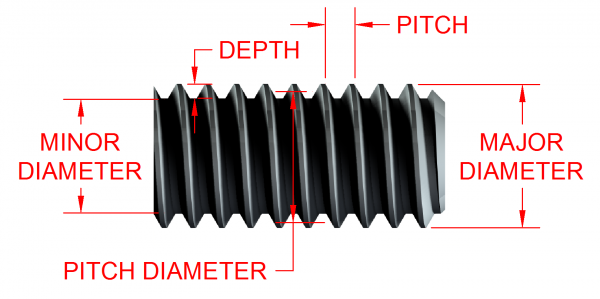Duct Tape Ops

Threading specification, via Wikipedia
Yesterday we tried out Slack’s new thread feature, and were left scratching our heads over the utility of that. Someone mused that Slack might be running out of features to implement, and I recalled Zawinski’s Law:
Every program attempts to expand until it can read mail. Those programs which cannot so expand are replaced by ones which can.
I think this is a tad ironic for Slack, given that some people believe that Slack makes email obsolete and useless. Anyway, I had ended up on Jamie Zawiski’s (jwz) Wikipedia entry and there was this comment about jwz’s law:
Eric Raymond comments that while this law goes against the minimalist philosophy of Unix (a set of “small, sharp tools”), it actually addresses the real need of end users to keep together tools for interrelated tasks, even though for a coder implementation of these tools are clearly independent jobs.
This led to The Duct Tape Programmer, which I’ll excerpt:
Sometimes you’re busy banging out the code, and someone starts rattling on about how if you use multi-threaded COM apartments, your app will be 34% sparklier, and it’s not even that hard, because he’s written a bunch of templates, and all you have to do is multiply-inherit from 17 of his templates, each taking an average of 4 arguments … your eyes are swimming.
And the duct-tape programmer is not afraid to say, “multiple inheritance sucks. Stop it. Just stop.”
You see, everybody else is too afraid of looking stupid … they sheepishly go along with whatever faddish programming craziness has come down from the architecture astronauts who speak at conferences and write books and articles and are so much smarter than us that they don’t realize that the stuff that they’re promoting is too hard for us.
“At the end of the day, ship the fucking thing! It’s great to rewrite your code and make it cleaner and by the third time it’ll actually be pretty. But that’s not the point—you’re not here to write code; you’re here to ship products.”
jwz wrote a response in his blog:
To the extent that he puts me up on a pedestal for merely being practical, that’s a pretty sad indictment of the state of the industry.
In a lot of the commentary surrounding his article elsewhere, I saw all the usual chestnuts being trotted out by people misunderstanding the context of our discussions: A) the incredible time pressure we were under and B) that it was 1994. People always want to get in fights over the specifics like “what’s wrong with templates?” without realizing the historical context. Guess what, you young punks, templates didn’t work in 1994.
As an older tech worker, I have found that I am more “fad resistant” than I was in my younger days. There’s older technology that may not be pretty but I know it works, and there’s new technology that may be shiny, but immature, and will take a lot of effort to get working. As time passes, shiny technology matures and becomes more practical to use.
(I am looking forward to trying “Kubernetes in a Can”)

Comment
Tiny Print:
<a href="" title=""> <abbr title=""> <acronym title=""> <b> <blockquote cite=""> <cite> <code> <del datetime=""> <em> <i> <q cite=""> <s> <strike> <strong>